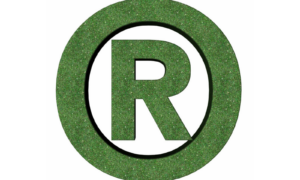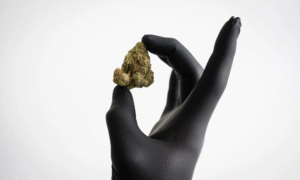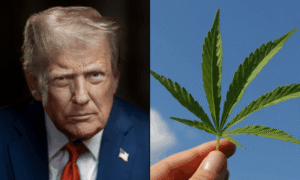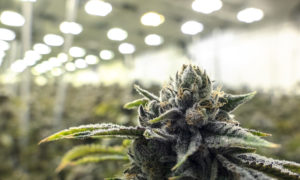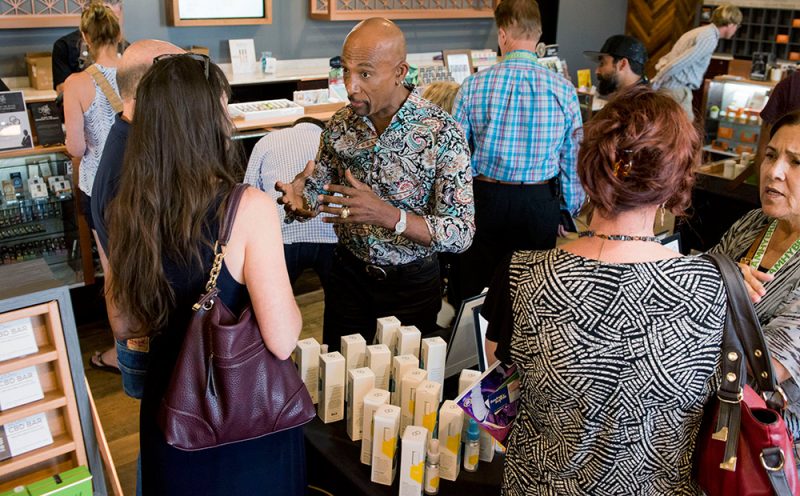
Montel Williams, center, speaks with guests at Bud and Bloom dispensary in Santa Ana about his new line of medical cannabis products on Wednesday, July 26, 2017. (Leonard Ortiz, Orange County Register/SCNG).
Eighteen years ago, television celebrity Montel Williams couldn’t have imagined he’d one day be standing in a sleek Santa Ana dispensary chatting with fans about his new line of cannabis products.
Long before California’s modern “green rush,” back when medical marijuana patients still risked having their homes seized for giving cannabis to needy friends, Williams was diagnosed with multiple sclerosis.
After a decorated 22-year stint in the military, Williams was at the peak of his entertainment career in 1999 as host of the Emmy-winning “The Montel Williams Show.” He was also in constant pain, downing a dozen opioids a day and battling depression that left him suicidal.
“It got out of control so quickly that I am still bearing the fruit and the damage of that even today, almost 20 years later,” Williams said.
In 2001, a doctor quietly recommended that Williams try medical marijuana to ease the chronic nerve pain and muscle spasms that accompany his incurable autoimmune disease. Williams says he found immediate relief, and he’s taken cannabis products almost daily since.
He’s also become one of the most high-profile proponents of medical marijuana, supporting legalization initiatives throughout the country even as threats of a crackdown by the Trump administration loom.
“I feel no one has a right to get into the middle of a conversation between a doctor and a patient,” he said. “If a doctor recommends cannabis, then everyone else needs to shut up and get out of that conversation.”
Williams is passionate about ensuring that serious medical patients such as himself – who need super clean, easy-to-consume products with precise ratios of particular compounds – don’t get forgotten as the more-profitable recreational marijuana movement spreads.
That mission led him Wednesday to Bud and Bloom dispensary in Santa Ana, where the trim 61-year-old in a bright paisley shirt was introducing the first two products available from his new California-based company, LenitivLabs.
It would be easy to dismiss Williams as just another celebrity looking to cash in on the booming marijuana market, since everyone from Tommy Chong to Melissa Etheridge has come out with a line of cannabis products over the past couple of years. And there’s no doubt money to be made, with industry research group New Frontier estimating the legal weed market will grow to $24 billion by 2025.
But the former talk show host happens to have an engineering degree from the U.S. Naval Academy, along with degrees in Russian and cryptology. As a serial entrepreneur, he’s worked in high-tech businesses, including medical devices and biofoods. And he was a special duty intelligence officer at the National Security Agency for nine years.
In other words, he said, “I’m a zealot investigator and studier.”
So ever since that doctor first recommended Williams try medical cannabis nearly 17 years ago, he’s been experimenting to figure out the best ways to use cannabis to ease symptoms of his debilitating disease.
Williams is not alone. Up to 40 percent of people with multiple sclerosis are now using medical marijuana as part of their treatment, according to an estimate from the Integrative Neurophysiology Laboratory at Colorado State University.
Dr. Thorsten Rudroff, a neurophysiologist at the Colorado lab, said his research has shown cannabis has promise in easing pain and muscle spasms to improve the quality of life for patients with multiple sclerosis.
“They are more active, sleep better and, very important, they stopped or reduced other pain medication such as opioids,” he said.
But since marijuana is still federally illegal and classified alongside heroin, Rudroff said research into how cannabis can treat multiple sclerosis and a myriad of other conditions has been severely hampered. That’s left many patients without guidelines on the best methods of ingestion, the best ratios of THC (the most psychoactive compound in cannabis) vs. CBD (the compound thought to have the most therapeutic benefits) and other information that could help them more effectively treat their condition.
When Williams first turned to cannabis, he said he spent months trying different strains and concentrations and concoctions he made in his apartment until he found the relief he was seeking.
His routine has also changed over the years as the science and market have evolved – and not always for the better, he said, lamenting products now for sale that are loaded with sugar and have traces of extraction chemicals.
“If we’re going to call this medicine, then you should produce it, formulate it and create it as medicine,” he said. “And if I can’t find what I want, then I’m going to create it myself.”
In September, Williams announced the launch of LenitivLabs, with the name drawn from the old English word “lenitive,” which means to soothe or assuage pain.
The company has some other big names behind it. They include former CIA director R. James Woolsey, former Republican Congressman Wilbert Tauzin from Louisiana and retired NFL player Marvin Washington, who is party to a lawsuit filed this week against the Drug Enforcement Administration and U.S. Attorney General Jeff Sessions over the inclusion of marijuana on the federal government’s list of controlled substances.
With help from BAS Research in Berkeley, Lenitiv has released two products that are on shelves at Bud and Bloom and some 16 other dispensaries in California, with rollouts to more legal weed states coming soon.
The first product is an oil that can be vaporized, smoked, dabbed or used to make edibles. The oil is extracted without any harmful solvents, Williams said, and formulated in a way that it can be absorbed quickly into the body.
The second Lenitiv product is a smoothie-style “shot” that Williams said doesn’t have to be refrigerated, making it acceptable under proposed California regulations.
Both the shot and the oil come for now in three ratios of THC to CBD.
“That allows you as the patient to titrate yourself the way you need to, to elicit the response you want,” he said.
Over the next two years, Williams said he plans to roll out 40 products, including new ratios of his oil and drink.
He doesn’t plan to enter the recreational cannabis market, but has no problem with those only interested in getting high. “Have fun,” he said.
“This is going to be a huge industry. If only 20 percent of the people in this entire industry want medical and they come to me, that’s alright.”
Some Lenitiv proceeds will help fund clinical research into medical cannabis, and he is backing efforts to reduce red tape on cannabis studies, Williams said. He also said he supports legislative efforts to expand access for veterans.
He’s not expecting help from the Trump administration, with Sessions pushing for a crackdown on states with legalized marijuana. But he argues the world realizes it’s been “hoodwinked” about marijuana for the past 80 years and any setbacks under the current administration in Washington will be quickly overcome as the country moves forward, creating continued opportunities for startups like his.
“This is just the tip of the iceberg,” he said.
Link – The Cannafornian

